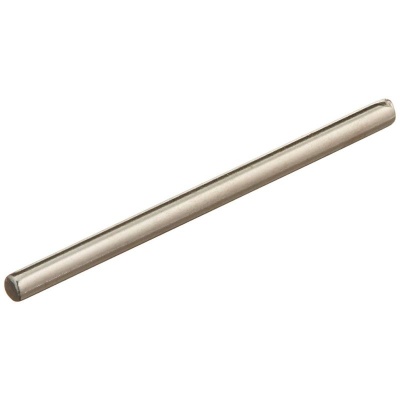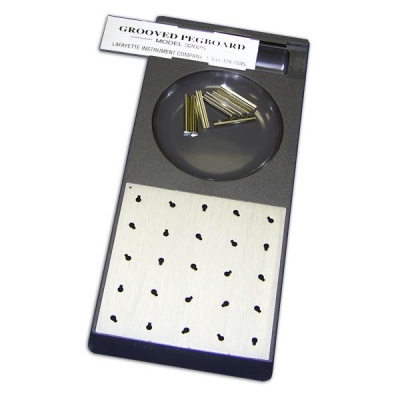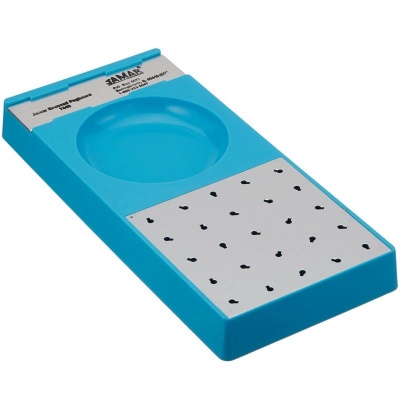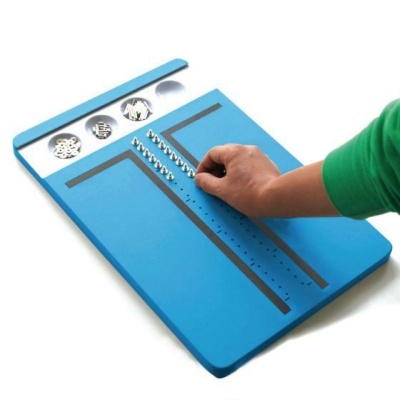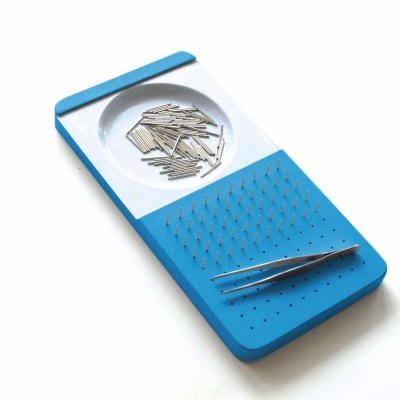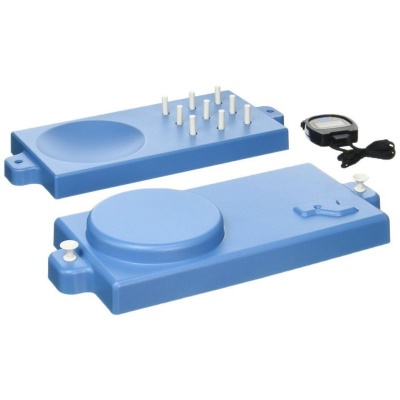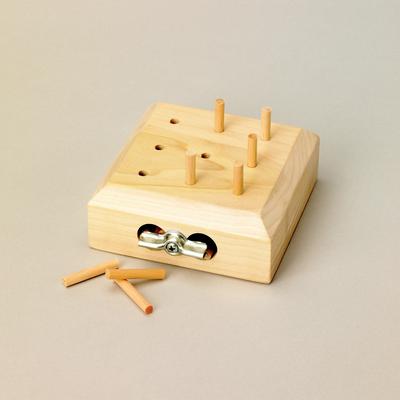Purdue Pegboard Test
The Purdue Pegboard Test is an excellent tool for identifying children with learning disabilities, assessing individuals for rehabilitation, analysing the performance of dyslexic subjects and assessing people with hand injuries, neurological impairments or orthopaedic injuries. This set includes everything you need, including an instructions manual and scoring application, to carry out the test without any prior knowledge or experience.
What's Included with the Purdue Pegboard Test?
The Purdue Pegboard Test includes:
- 1 x Purdue test board
- 55 x Pins
- 45 x Washers
- 25 x Collars
- 1 x Examiner's manual
- 1 x Purdue pegboard scoring application
What Is the Purdue Pegboard Test?
The Purdue Pegboard Test, created in 1948 by Joseph Tiffin, Ph.D., a Purdue University Industrial Psychologist, is a neuropsychological test of manual dexterity and bimanual coordination. The test involves two different abilities: gross movements of arms, hands and fingers, and fine motor extremity, also called "fingertip dexterity". Poor pegboard performance is a sign of deficits of complex, visually guided, or coordinated movements.
Where Is the Purdue Pegboard Test Used?
The Purdue Pegboard Test can be used for a variety of testing applications, but is most common in:
- Physical therapy
- Occupational therapy
- Vocational therapy
- Pre-employment screening
Who Can Use the Purdue Pegboard Test?
The Purdue Pegboard Test is exceptionally easy to administer, and can be done without any prior experience or knowledge. It is often used by:
- Occupational and physical therapists for injury rehabilitation, used as a tool to obtain baseline data on a patient, as well as documenting patient progress or the degree of a disability.
- Vocational evaluators to determine a subject's ability and aptitude for certain work-related applications. It is also used to develop a specific training program, giving an individual the skills to complete a job or task that requires manual dexterity.
- Human resource directors and temporary staffing agencies who use it as a pre-employment screening and selection tool. An applicant's performance on the Purdue Pegboard Test can indicate their ability to perform tasks in a job that requires manual dexterity.
Who Is the Test Suitable For?
Originally designed to test motor skills and fingertip dexterity of factory job applicants, today the pegboard is used mostly in healthcare. It is excellent for a range of assessments, including:
- Identifying and assessing children with learning disabilities
- Assessing individuals for rehabilitation
- Analysing the performance of dyslexic subjects
- Assessing people with hand injuries, neurological impairments or orthopaedic injuries
Moreover, regularly using a pegboard can also help with rehabilitation and recovery process. Among other things, it can:
- Improve cognitive and visual skills
- Improve coordination and endurance
- Increase muscle strength
- Increase upper extremity range of motion and pincer grip
How Does the Purdue Pegboard Work?
The Purdue Pegboard is a rectangular board with two sets of 25 holes running vertically, and four concave cups at the top. Small metal pegs are placed in the cup on the side being tested, while the subject is asked to remove the pegs and place them vertically in the holes as rapidly as possible.
The test takes about 30 seconds per activity for a total of less than five minutes. For most accurate results, it's important to combine four separate scores from the complete test procedure, one for each of the following tasks:
- Right hand (30 seconds): the total number of pegs placed in the right hand column using the right hand in the allotted time. Each properly inserted pin equals one point.
- Left hand (30 seconds): the total number of pegs placed in the left hand column using the left hand in the allotted time. Each properly inserted pin equals one point.
- Both hands (30 seconds): the total number of pairs of pegs placed using both hands in the allotted time. Each properly inserted pin equals one point.
- Assembly (60 seconds): sequence consists of assembling pins, collars and washers. Each completed assembly is four points.
How Do I Interpret the Results?
Once you have the results, it's important to compare them to standard data specific for your age group. This can to a certain degree depend on the test subjects, but a research carried out in 2006 has led to the following norms for age groups five to 65 years.
Normative Scores for Males
| Age Group | 5 - 15 | 15 - 25 | 25 - 35 | 35 - 45 | 45 - 55 | 55 - 65 |
| Dominant Hand | 15 | 17 | 16 | 16 | 16 | 13 |
| Non-Dominant Hand | 14 | 16 | 16 | 15 | 14 | 13 |
| Both Hands | 12 | 13 | 13 | 13 | 12 | 11 |
| Assembly | 31 | 37 | 36 | 34 | 30 | 28 |
Normative Scores for Females
| Age Group | 5 - 15 | 15 - 25 | 25 - 35 | 35 - 45 | 45 - 55 | 55 - 65 |
| Dominant Hand | 15 | 18 | 16 | 16 | 15 | 14 |
| Non-Dominant Hand | 14 | 17 | 15 | 14 | 14 | 13 |
| Both Hands | 11 | 14 | 14 | 13 | 12 | 12 |
| Assembly | 28 | 42 | 37 | 34 | 30 | 29 |
The Purdue Pegboard Test is usually dispatched by 24 - 48 hour courier.
This item is usually dispatched the same day for 1 - 2 working day delivery when ordered before 2.00pm, Monday to Friday.
Please call our Health and Care Customer Care Team on 020 7720 2266 if you have any questions about the delivery of this item.

